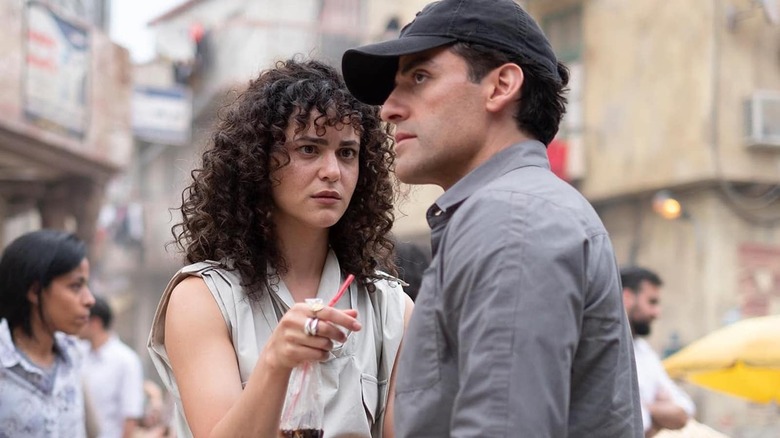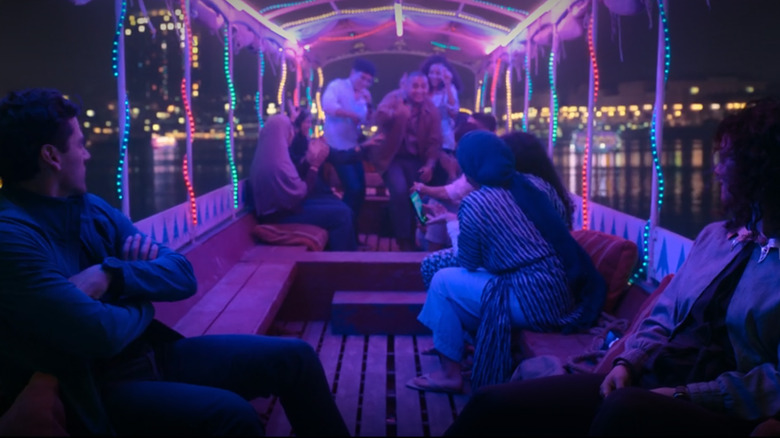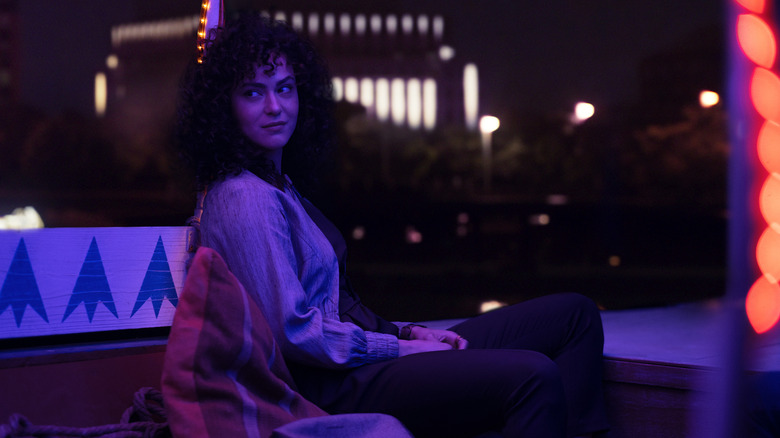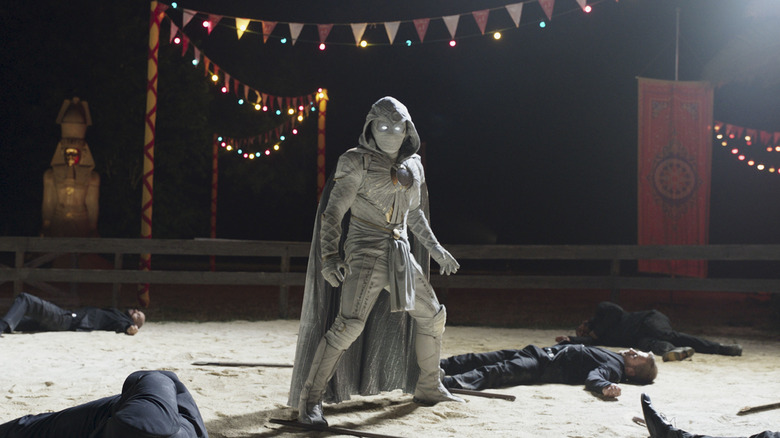The Banned Music That Gives Moon Knight Its Soundtrack
When director Mohamed Diab approached the Disney+ series "Moon Knight," he was deeply concerned with making the series look and feel authentically Egyptian. A big part of that was bringing the sounds of Egypt to the production, and for that the director made a bold choice, playing songs by underground Egyptian musicians who had been banned by their own government.
Diab incorporated mahraganat, a genre of street-level Egyptian rap that has been banned by the country but grows in popularity among its people regardless. Just as hip-hop and rap gave voice to marginalized communities in America's inner cities, mahraganat developed as a type of party music that happened to contain relatable, sometimes controversial lyrics about life among the working class. It has become the music of a generation fighting against oppression and censorship, and including it in a Disney+ series shown around the world could help introduce more people to this incredible underground genre.
The music of the people
"Mahraganat" means "festivals" in Arabic, which pays homage to the genre's origins at weddings and street parties. Egyptian Muslim weddings traditionally have a full band with drums, but not everyone can afford to hire a full band for their wedding, so DJs started making do by creating songs that mixed traditional percussion beats with electronic music to make a new kind of wedding music. These DJs then took the same songs to street parties, and protests, and mahraganat was born.
Despite being around since before the Arab Spring in 2010, the genre was banned in 2020 by the country's musicians' syndicate, which is tied to the national government. Anyone performing, selling, playing, or providing concert space to mahraganat artists could be fined. A Valentine's Day concert by popular mahraganat artists Hassan Shakosh and Omar Kamal led to the ban, as their lyrics referenced premarital sex, drinking, and drug use. While not all mahraganat musicians are strictly political or anti-government, their honest lyrics about everyday life don't paint a pleasant picture of the regime and often fly in the face of religious or political control.
A modern Egypt
Instead of depicting the antiquated versions of Egypt we still see in many mainstream films, Diab wanted to depict a living, breathing Egypt that mirrored our modern world. Music from banned mahraganat artists plays in multiple episodes, but is featured the most distinctly when Marc (Oscar Isaac) and Layla (May Calamawy) ride a ferry down the Nile river and a group of revelers play a song on the radio, then begin dancing and singing along. Marc comments that he hasn't heard the song since his and Layla's wedding, a moment that makes them feel cemented in Egypt in 2022. The song, "Salka," is by the popular but banned singer Hassan Shakosh, and is only one of many banned musicians on the show's soundtrack.
Including this banned music has caused some controversy in Egypt, though Diab is no stranger to ruffling authoritarian feathers: his 2016 thriller about the 2013 military coup of Egypt, "Clash," faced numerous censorship challenges.
Using a fictional plight to educate people about a real one
The songs themselves were picked by "Moon Knight" producer (and Diab's wife) Sarah Goher, and Diab said that they helped people get into the right frame of mind during filming:
"In our show, I'm proud of the music. I'm proud of the songs. The composer [Hesham Nazih] is Egyptian, and we use some old Egyptian songs and some of the new Egyptian rap scene. A lot of people told me, 'We Shazam'd them,' and, 'We felt connected to them, and we love them, even though we don't understand anything.' That connects people."
Hopefully, by including mahraganat in "Moon Knight," Diab will introduce a whole new audience to this underground music. If people start enjoying the catchy beats and decide to learn more, then maybe they will further educate themselves on what's happening in Egypt under authoritarian rule. We do not live in a vacuum and what happens around the world impacts all of us, so it's important to learn as much as we can about one another as possible before it's too late. Diab took a chance by putting banned music in his streaming series, and it's a surprisingly gutsy move by the ever-placating House of Mouse. What's great is that even though many of these musicians are banned in Egypt, their music is still accessible online, allowing them to spread their message, sound, and make a living without the government's interference.
You can learn more by checking out the 2014 documentary Electro Chaabi or by checking out the musicians themselves on Spotify, YouTube, and more. The first season of "Moon Knight" is available to stream on Disney+.



